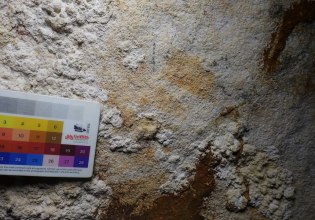A $300mn fraud case sinks Aegean Marine Petroleum
Damning evidence in the Audit Committee’s report on the scandal, new Board will seek to retrieve embezzled funds, as US authorities examine the case
Amazingly, the auditors’ report says that employees and higher-level management suffered psychological and even physical violence, to force them to participate in defrauding shareholders. Equally noteworthy were the obstacles for the audit raised by the Hellenic Data Protection Authority, during the audit at Aegean’s Piraeus offices.
In its formal statement to New York Stock Exchange authorities, the company admits that it is difficult to retrieve data on the losses. Nonetheless, it stresses that it will diligently seek damages from the masterminds of the abusive actions. Moreover, the company’s Board believes that the adjusted balance sheets for the years in question will reveal significantly reduced revenues and profits.
The Aegean Marine Petroleum Network was founded by Dimitris Melissanidis with the purpose of providing marine fuel, and it was listed on the New York Stock Exchange in 2006. Dimitris Melissanidis later pulled out of the company, selling his 15 percent stake in the company to the company itself for $100mn. After 2016, he stayed on as an advisor, but he resigned when the managers of three American Funds who together controlled 13 percent of the stock obtained seats on the Board and launched audits, as there were obvious signs of mismanagement.
Last June, the company’s stock collapsed, as the preliminary investigation showed that the $200mn in receivables had no “economic substance”. The liquidity problems were intense, and it took the assistance of the Swiss company Mercuria, which acquired nearly one-third of Aegean’s stock, in return for $1bn in credit for the company and $30mn in cash, for the company to continue operating.
How the scam was set up
In the company’s formal statement to New York Stock Exchange authorities last Friday, it says that the investigation has essentially been completed, and that based on the evidence to date, the Audit Committee and the Board of Directors drew their conclusions:
1. The Audit Committee believes up to US$300 million of Company cash and other assets were misappropriated through fraudulent activities. The Audit Committee believes that the principal beneficiary of the misappropriation is OilTank Engineering & Consulting Ltd. (“OilTank”), a company based in Fujairah and incorporated on March 15, 2010 in the Marshall Islands. On March 31, 2010 OilTank entered into a contract with Aegean’s subsidiary to oversee the construction of the Fujairah Oil Terminal Facility (the “Fujairah Facility”). The Audit Committee believes that this contract was used to misappropriate Company funds through inflated contracts and fraudulent pricing. The Audit Committee has reason to believe that OilTank is controlled by a former affiliate of the Company (the “Former Affiliate”).
2. As of December 31, 2017, the Company and/or its subsidiaries had an aggregate of approximately US$200 million in accounts receivable that arose from purported commercial transactions that occurred in 2015, 2016, and 2017. These transactions lacked economic substance as the relevant counterparties were shell companies with no material assets or operations and were owned or controlled by former employees or affiliates of the Company. The Audit Committee believes that the receivables were improperly recorded as part of a scheme to facilitate and conceal an extensive misappropriation of Company assets channeled to OilTank, but accounted for as transactions with these shell companies. The Audit Committee has further confirmed that the approximately US$200 million of receivables are uncollectible and will be written off.
3. The Investigation also uncovered additional actions to defraud the Company and/or its subsidiaries, including prepayment for future oil deliveries that were never made. These fraudulent activities appear to have commenced as early as 2010.
4. The misappropriation of Company assets, and the fraudulent accounting entries and fictitious documentation designed to conceal it, involved over a dozen Company employees, including members of senior management. The employees who directed the scheme, which involved the creation of falsified and forged documents, including bank statements, audit confirmations, contracts, invoices and third party certifications, among others, have been terminated.
Psychological, physical violence threats against employees
5. The Audit Committee believes that this misconduct occurred in part because the Former Affiliate has exerted significant control over Company personnel and assets through various inappropriate means, including threats of economic retaliation and physical violence. In addition, the Former Affiliate continues to have access to and control over the Company’s electronic and physical files.
The Company intends to take appropriate steps to seek redress from responsible individuals and other parties for the harm to the Company caused by their involvement in the activities described above, including instituting legal proceedings and seeking to seize assets in applicable jurisdictions wherever feasible and appropriate. Although the Company intends to pursue these matters vigorously, there can be no assurance that it will be able to recover a material portion of the losses it has incurred.
Effort to delete files
In connection with the Investigation, the Company’s efforts to obtain access to relevant emails and other electronic data stored on the Company’s server were and continue to be obstructed as a result of, among other things, the threats of retaliation against Company personnel, and at least one attempt to delete and permanently erase documents from the Company’s server through the remote installation of data deletion software by a person with administrator access.
On June 22, 2018, following a complaint by the Former Affiliate and related parties, the Hellenic Data Privacy Authority (“HDPA”) issued a provisional order which prohibited the review or use of emails and other files that were collected from the Company’s Piraeus, Greece server in connection with the Audit Committee’s investigation. The Company is actively litigating the HDPA’s order.
US law enforcement involvement
As previously disclosed, the Company voluntarily reported its preliminary findings to the U.S. Securities and Exchange Commission (“SEC”) and the U.S. Department of Justice (“DOJ”) and has now reported the results of the Audit Committee investigation.
Financial results
Based on the foregoing, the Audit Committee has concluded that the Company’s financial statements for the fiscal years under investigation should no longer be relied upon. . Similarly, related press releases describing the Company’s financial results for such periods should no longer be relied upon.
The Company intends to restate the Affected Financial Statements to reflect the effect of the fraudulent activities described above. The Company intends to work with its auditors, PricewaterhouseCoopers S.A. (2016 and 2017) and Deloitte Certified Public Accountants S.A. (2015), to determine the individual and net effect of the inaccurate accounting entries and the theft of Company assets.
The Company does not expect to file its semi-annual financial statements for the period ending June 30, 2018 until restated financial statements have been completed.
In its statement, Aegean underlines that it will restore internal control mechanisms, will relocate its headquarters, replace those who comprise the aforementioned management, and remove all those implicated in the fraud.
Rapid-fire developments are reportedly expected in New York, and the role of the US Embassy in Athens and Ambassador Geoffrey Pyatt is considered decisive, as is that of competent auditing authorities, which have come to Greece for this purpose.
- Greek Tourism on Track for Record Revenues in 2025
- Άμεση αντίδραση σε πλημμυρικά φαινόμενα στην Καλαμάτα
- Ο Σπαλέτι απάντησε σε… προπονητή της εξέδρας: «Αν δεν σου αρέσει η Γιουβέντους, κάτσε σπίτι» (vid)
- Στέφανος Παπαδόπουλος: «Σκέφτηκα να αποσύρω τη μήνυση κατά του Γιώργου Μαζωνάκη»
- Καιρός: Βροχές στην Αττική το απόγευμα και τη νύχτα – Πώς θα εξελιχθούν τα καιρικά φαινόμενα
- Ψήφισμα του Περιφερειακού Συμβουλίου Πελοποννήσου για τον θάνατο του λιμενικού στο Παράλιο Άστρος
- UEFA Champions League: Το απόλυτο θρίλερ πρόκρισης Άγιαξ – Ολυμπιακός έρχεται στο MEGA
- Χωρίς ανακοινώσεις η σύσκεψη για την ευλογιά στο Μαξίμου – Μέτρα προσεχώς…
Ακολουθήστε το in.gr στο Google News και μάθετε πρώτοι όλες τις ειδήσεις








![Άκρως Ζωδιακό: Τα Do’s και Don’ts στα ζώδια σήμερα [Πέμπτη 22.01.2026]](https://www.in.gr/wp-content/uploads/2026/01/josh-gordon-h8Od9ze-0o-unsplash-315x220.jpg)









































































 Αριθμός Πιστοποίησης Μ.Η.Τ.232442
Αριθμός Πιστοποίησης Μ.Η.Τ.232442